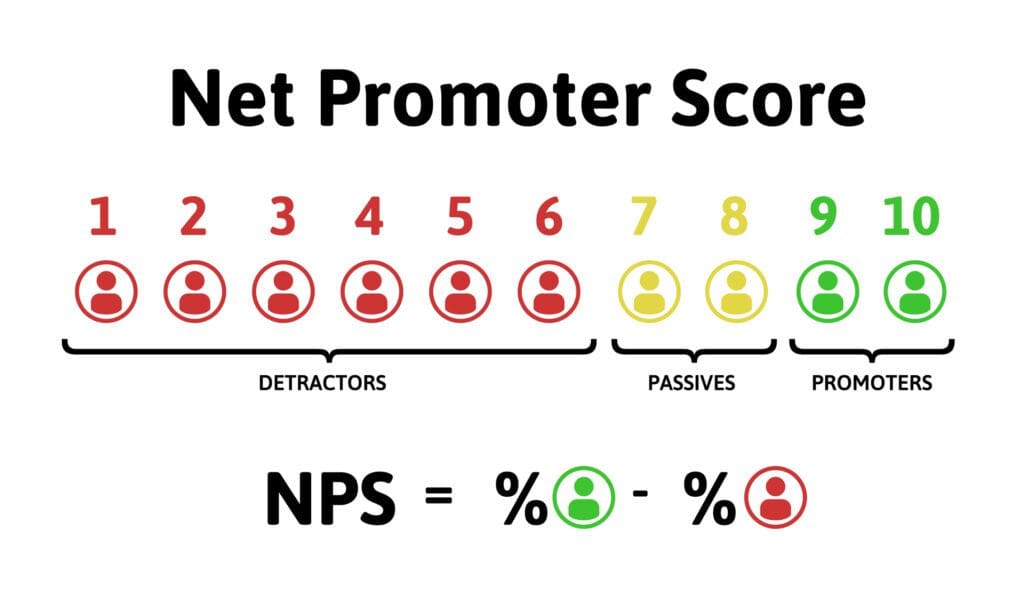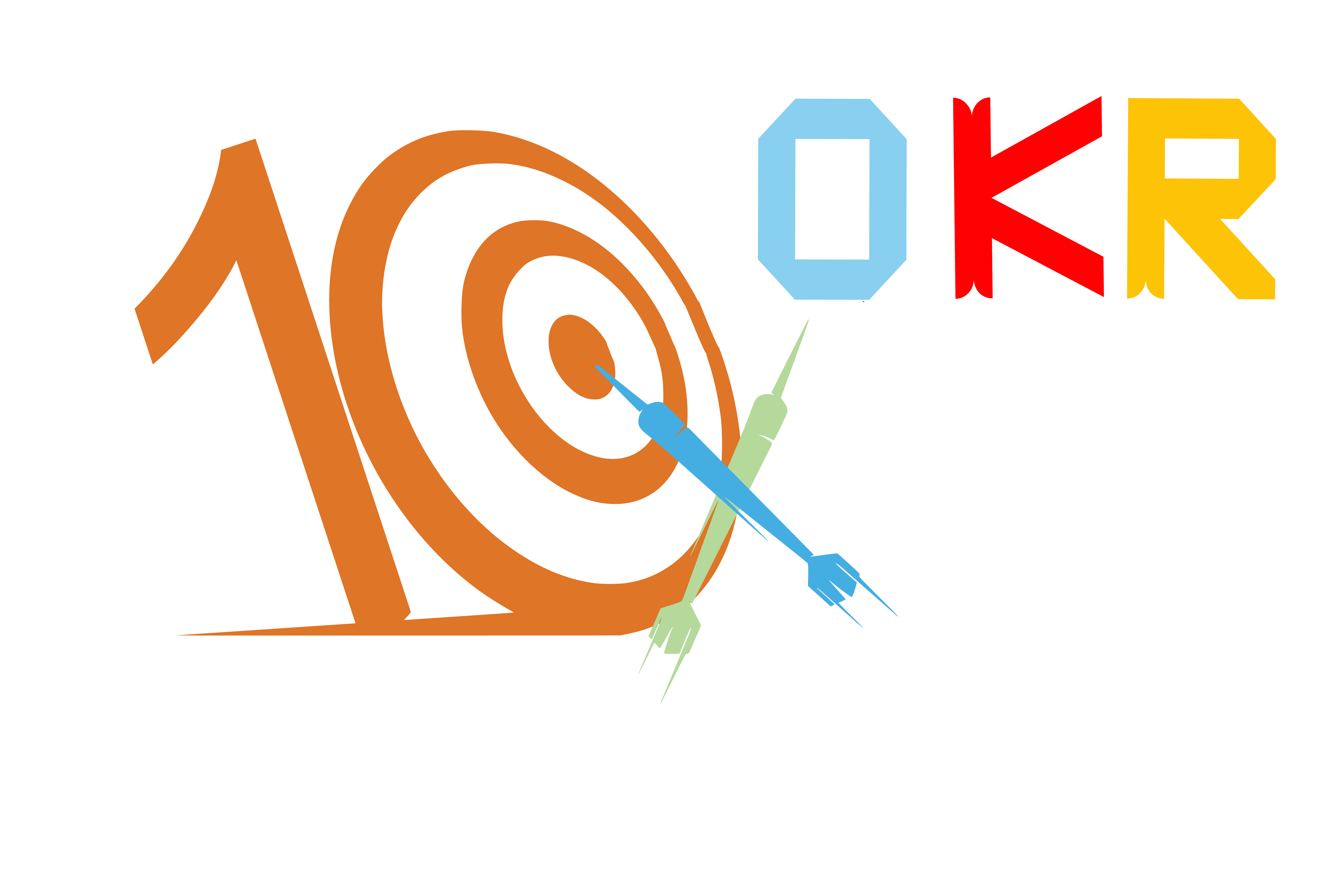Table of Contents
How Can Net Promoter Score KPI Help Your Business?
As businesses strive to grow and expand, they must closely monitor customer satisfaction and loyalty. Utilising the Net Promoter Score KPI (NPS) is among the most efficient ways to achieve this. This simple yet powerful metric helps businesses measure customer loyalty and satisfaction and clearly shows how customers perceive their products and services.
In this article, we’ll look at the value of the Net Promoter Score KPI for organisations, how it’s determined, and how it may be applied to raise client retention and satisfaction.
Introduction to Net Promoter Score KPI
Net Promoter Score KPI is a key customer-based performance indicator measuring customer loyalty and satisfaction. The NPS metric was introduced by Fred Reichheld in 2003, and it has since become a popular tool for businesses to gauge customer loyalty and satisfaction.
The NPS score is determined by a straightforward inquiry that asks clients how likely, on a scale of 0 to 10, they are to suggest a business’s goods or services to a friend or colleague.
Why is Net Promoter Score KPI an Important Metric for Businesses?
Net Promoter Score KPI is an essential metric for businesses because it clearly explains how customers perceive their products and services. It helps businesses identify the areas that need improvement and the ones that are working well. The NPS score also provides organisations with a standard against which to compare their performance to that of their rivals. It may also be used to monitor customer loyalty and satisfaction over time.
Furthermore, Net Promoter Score KPI is an important metric based on customer feedback. Businesses can obtain valuable insights into customers’ likes and dislikes about their products or services by asking customers simple questions. This feedback can improve customer experiences, support, and retention rates.
Understanding the Net Promoter Score KPI – How is it Calculated?
The percentage of detractors (customers who rate the firm with a score of 0–6) is subtracted from the percentage of promoters (customers who evaluate the company with a score of 9–10) to determine the Net Promoter Score KPI. A score between -100 and 100 is the outcome.
For example, if a company has 50% promoters, 20% detractors, and 30% passives (customers who rate the company with a 7-8), the NPS score would be 30 (50% – 20%). A high NPS score indicates that the company has high customer loyalty and satisfaction. In contrast, a low NPS score indicates that the company needs to improve in certain areas.


Promoters, Detractors, and Passives – Explained
Promoters, detractors, and passives are the customer categories used to calculate the Net Promoter Score KPI. Promoters are customers who rate the company with a score of 9-10, and they are the ones who are most likely to recommend the company’s product or service to others. Detractors are customers who rate the company with a score of 0-6 and are the ones who are most likely to discourage others from using the company’s product or service. Passives are customers who rate the company with a score of 7-8 and are neutral or indifferent towards the company’s product or service.
The Role of Word-of-Mouth in the Net Promoter Score KPI
Word-of-mouth plays a significant role in the Net Promoter Score KPI. Promoters are the customers who are most likely to recommend the company’s product or service to others, and their positive word-of-mouth can drive new business.
On the other hand, detractors are the customers who are most likely to discourage others from using the company’s product or service. Their negative word-of-mouth can harm the company’s reputation and bottom line. Therefore, businesses need to improve their NPS score by creating positive customer experiences and addressing any issues that may arise.
NPS Benchmarks: How Does Your Company Compare?
NPS benchmarks compare a company’s NPS score to industry standards and competitors. Businesses can discover their strengths and weaknesses and create strategies to raise their NPS rankings by comparing their scores. NPS benchmarks vary by industry, and businesses need to compare their scores to their competitors in the same industry.
Real-time Feedback with NPS Surveys
NPS surveys are a valuable tool for obtaining real-time customer feedback. Businesses can gain important insights into what customers like and hate about their products or services by distributing NPS questionnaires following a customer encounter. This feedback can improve customer experiences, support, and retention rates.
How to Improve Your Net Promoter Score KPI – Tips for Increasing Customer Satisfaction
Improving your Net Promoter Score KPI requires a concerted effort to improve customer satisfaction and loyalty. Here are some tips for increasing customer satisfaction:
1. Focus on creating positive customer experiences:
Customers who enjoy using your product or service are more inclined to recommend it to others. Make an effort to give your customers a seamless and delightful experience.
2. Address customer issues promptly:
When customers have issues with your product or service, it is essential to address them promptly. By addressing customer issues, you can turn detractors into promoters.
3. Provide excellent customer support:
Providing excellent customer support is essential for improving customer satisfaction. Ensure your support team is knowledgeable, responsive, and empathetic towards your customers.
4. Use customer feedback to improve:
Utilise client input to discover areas for improvement and devise ways to address them.
The Long-term Benefits of Using Net Promoter Score KPI
Using Net Promoter Score KPI has several long-term benefits for businesses. A high NPS score indicates that customers are loyal and satisfied with the company’s products or services. This leads to increased customer retention rates and positive word-of-mouth, which can drive new business.
Furthermore, using NPS surveys to gather real-time customer feedback can assist companies in improving customer experiences and support, ultimately leading to increased customer satisfaction and loyalty.
Net Promoter Score KPI for Different Types of Businesses
Net Promoter Score KPI can be used by any business, regardless of industry or size. It is a versatile metric that can be adapted to fit the unique needs of any business. Implementing NPS surveys to get real-time consumer feedback. This will increase customer retention rates and generate positive word-of-mouth.


Net Promoter Score KPI vs Other KPIs – Which is More Important?
Net Promoter Score KPI is an important metric for businesses, but it is not the only metric that businesses should focus on. Other KPIs, such as customer acquisition costs, lifetime value, and churn rate, are important metrics that businesses should track. However, Net Promoter Score KPI is unique because it provides a simple metric measuring customer loyalty and satisfaction.
Conclusion
Net Promoter Score KPI is a powerful tool for businesses to measure customer loyalty and satisfaction. Businesses can obtain valuable insights into customers’ likes and dislikes about their products and services by asking customers simple questions.
The NPS score provides a clear benchmark for businesses to measure their performance against competitors and track customer loyalty and satisfaction over time. Employing NPS surveys to get real-time consumer feedback can help companies enhance customer loyalty and satisfaction, leading to higher customer retention rates and positive word-of-mouth.



